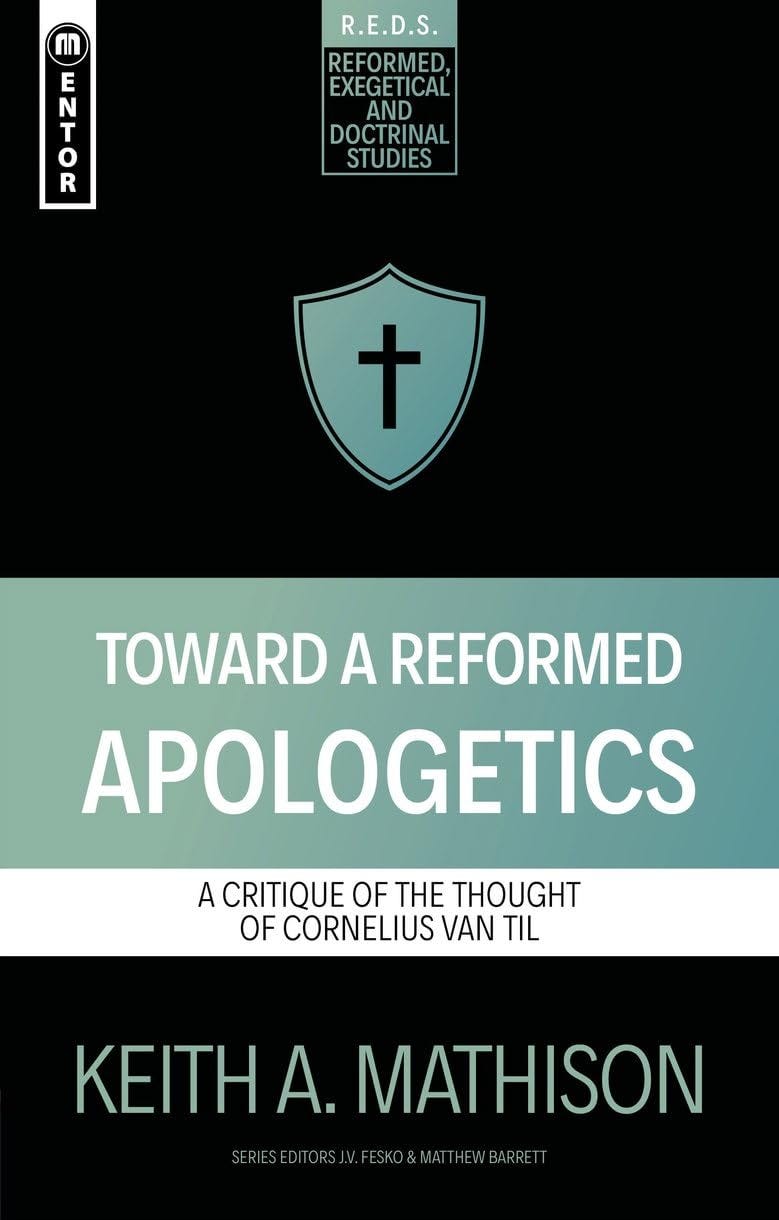Toward a Reformed Apologetics: A Critique of the Thought of Cornelius Van Til1 by Keith A. Mathison is a carefully well-thought out logical argument for classically reformed apologetics for the Christian church. It was of eager anticipation for me to get this book having read a little bit about Sproul’s commitment to such, but never really understanding why anyone in the reformed world would resist a presuppositional apologetic. It had been communicated over the years, at least implicitly through most of reformed writings I have read, that the presuppositional view was standard reformed. Having taken apologetics at the Masters level in seminary, the institution where I was trained did not present to me the classical view in the way formulated by Mathison or by Sproul. I remained biased toward presuppositional apologetics until I read this book at a time when I was also studying from Isaiah 1 where I became convinced in the classical method.
It is clear from the start that Mathison is grateful for Van Til’s efforts while also arguing against where his method is wrong. The same can be said of Sproul whose Classical Apologetics book is actually dedicated to Van Til. The first part of Mathison’s book is a clear effort to understand and appreciate Van Til’s contribution where able and fairly to move into a critique thereafter.
Reformed peoples have longed for a reformed apologetic as expressed in the Reformed confessions (p.17). There are various types of Van Tillians including some which have heavily influenced me called reconstructionists (p.21). Others include John Frame and Bahnsen, both of which offer exceptional scholarship. And still others like Geerhardus Vos fall into the redemptive historical camp of Van Til (pp.21–22). Tere are Covenantal Van Tillians like K. Scott Oliphint (p.23), and Systematic ones like Lane Tipton (p.23). Still more, there are the analytic ones like James N. Anderson (p.24). Mathison clearly went through thoughtful efforts in this book to have many of these living to read and see if Van Til’s view is fairly set forth here (see preface).
Mathison’s approach in this book is to structure the first part in explaining Van Til starting with the doctrine of God. His aim was to: “My hope is that these pages will be used to further the discussion among Van Tillians and non-Van Tillians so that as brothers in Christ we might ‘be of help to one another.' (p.32)”
Mathison writes,
“The Doctrine of God The doctrine of the Triune God is the cornerstone of Cornelius Van Til's apologetic thought. Everything else that he teaches concerning knowledge and its apologetic implications builds directly upon what he says about God and ultimately depends for its coherence on what he says about God” (p.38).
The pages that follow explain Van Til’s view of God leading up to the second portion of the book. Most striking is the problem concerning the Trinity. Van Til asserted that God is three persons and also one person, which is contrary to reformed confessions and creeds of the early church which states God is one substance or subsistence and three persons. The difference may sound slight to the novice reader, but it is a very serious issue that is definitive to the Christian faith.
Another matter that is serious is in the matter of knowledge. One of Van Til’s major doctrinal points includes that the decree of God is eternally planned and that is how God knows what comes to pass. This sounds good except that this makes God has already interpreting all of the fact so that no human interpretation is necessary or even capable (p.50).
I am only highlighting a few things along the way. Mathison covers issues of God’s independence as well as other things. This is a review not a treatise, so I must be brief. The second portion of the book critique’s Van Til’s views. The book covers a thorough amount of time understanding these views before turning to critiquing them. Nevertheless, the reader may wish to know Mathison’s stance up front, even though it appears toward the end. Mathison states,
“I do not embrace Van Til's apologetic system of thought because the evidence indicates that it is contrary to the teaching of Scripture, that it conflicts with the historic Reformed theological tradition, and that it is fundamentally rooted in an unbiblical modernist theory of knowledge. In short, I do not embrace Van Til's apologetic system because it is neither biblical nor Reformed” (p.230).
This is an astonishing statement that I can assure you is made with the utmost biblical, theological, historical, and practical support. I found Mathison’s argument compelling and as a pastor, especially in line with Scripture. As I read and studied for a sermon from Isaiah 1, the timeliness of this treatise served to confirm many notes I had previously written down about how Isaiah argued in that first chapter. It is worth spending some time getting to know the argument in this book for the sake of the purpose that brothers may be a help to one another (as stated as the goal).
A copy provided to me for free by the publisher. Link is Amazon affiliate.





